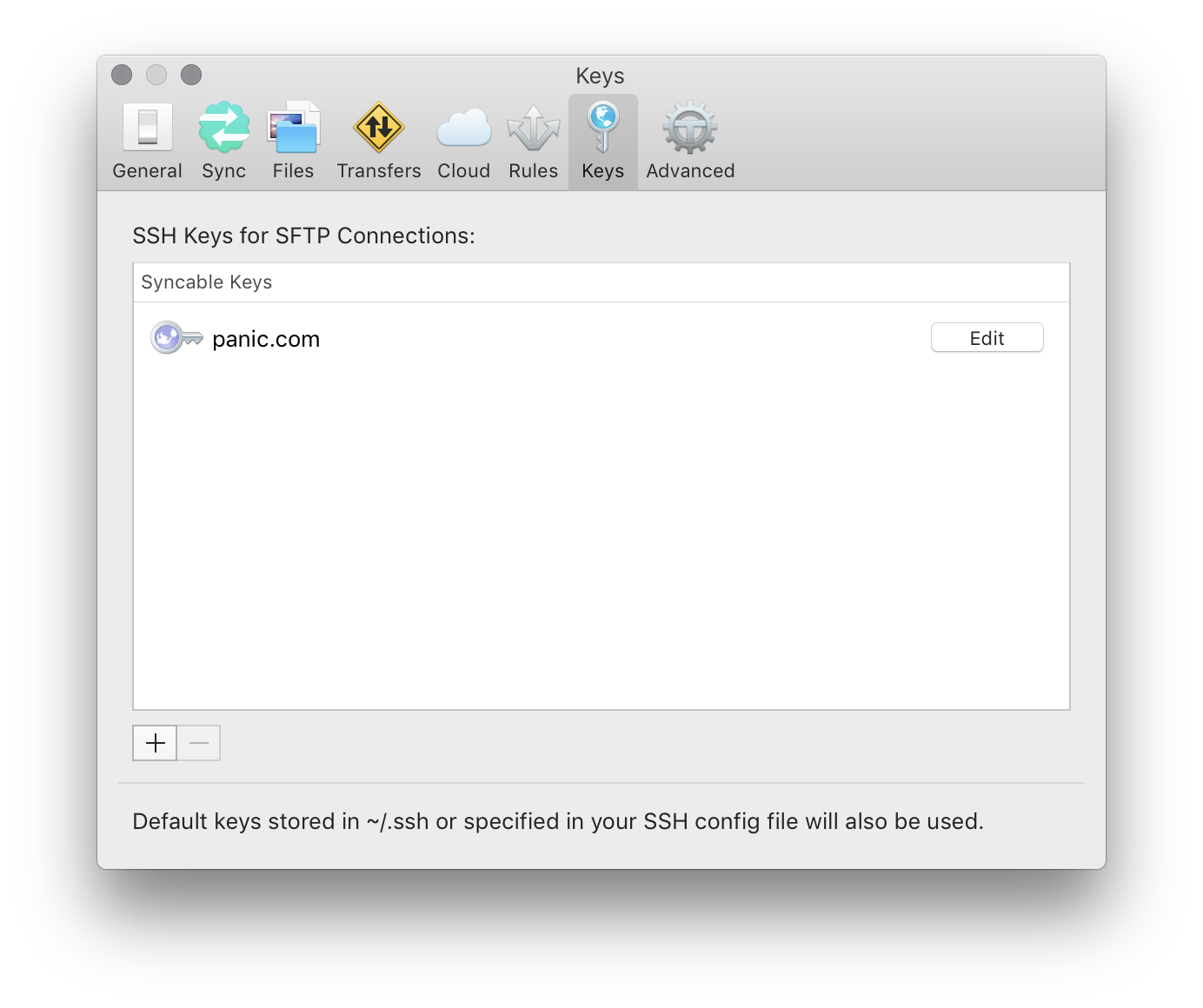See full list on docs.microsoft.com. Apple: How to manually add ssh key to keychain?Helpful? Please support me on Patreon: thanks & praise to God,. SSH stands for Secure Shell and is a cryptographic protocol based on the concept of public-private keys. We are using SSH with Git because it is much easier than typing your username and password. Keychain is a manager for ssh-agent, typically run from /.bashprofile. It allows your shells and cron jobs to easily share a single ssh-agent process. By default, the ssh- agent started by keychain is long-running and will continue to run, even after you have logged out from the system.
| Article Index |
|---|
| Generating SSH Keys |
| Generating a key |
| Transferring your key |
| Using an SSH Agent |
| Keychain and SSH |
| SSH and GNOME |
| Wrapping Up |
| All Pages |
Keychain (http://www.gentoo.org/proj/en/keychain/) is tool that aids the user in finding an existing ssh-agent or creating a new one (not to be confused with the Keychain tool for GNOME or Mac OS X). Keychain is available on Debian systems via APT and Gentoo via emerge. You can acquire the source from the above stated URL. I personally use Keychain on my Mac because it is the easiest way of managing SSH keys because I run it in my BASH start up:
keychain source ~/.keychain/$(HOSTNAME)-sh
On login I see this message (or messages saying its creating various files for me, see next example)
KeyChain 2.6.8; http://www.gentoo.org/proj/en/keychain/
Copyright 2002-2004 Gentoo Foundation; Distributed under the GPL
* Found existing ssh-agent (250)
This finds an existing ssh-agent session and connects me to it. The first time it runs we have to still add our passphase using ssh-add:
KeyChain 2.6.8; http://www.gentoo.org/proj/en/keychain/
Copyright 2002-2004 Gentoo Foundation; Distributed under the GPL
* Initializing /Users/moffats/.keychain/bigmac-sh file...
* Initializing /Users/moffats/.keychain/bigmac-csh file...
* Initializing /Users/moffats/.keychain/bigmac-fish file...
* Starting ssh-agent
bigmac:~ moffats$ ssh-add
Enter passphrase for /Users/moffats/.ssh/id_rsa:
Identity added: /Users/moffats/.ssh/id_rsa (/Users/moffats/.ssh/id_rsa)
Once we've done this, we don't need to run ssh-add until we next reboot as Keychain will continue to find the existing session. It will fail if your hostname changes on your machine, however this is usually only an issue for laptops (specifically ones that are set to reconfigure their hostname based on their DNS name, such as Mac's).
| Next > |
|---|
Name
keychain - re-use ssh-agent and/or gpg-agent between logins
Synopsis
keychain [ -hkQqV ] [ --clear --help --ignore-missing --noask --nocolor --nogui --nolock --quick --quiet --version ] [ --agents list ] [ --attemptsnum ] [ --dir dirname ] [ --host name ] [ --lockwait seconds ] [ --stop which ] [ --timeout minutes ] [ keys...]
Description
keychain is a manager for ssh-agent, typically run from ~/.bash_profile. It allows your shells and cron jobs to share a single ssh-agent process. Bydefault, the ssh-agent started by keychain is long-running and will continue to run, even after you have logged out from the system. If you want to change thisbehavior, take a look at the --clear and --timeout options, described below.
When keychain is run, it checks for a running ssh-agent, otherwise it starts one. It saves the ssh-agent environment variables to ~/.keychain/${HOSTNAME }-sh, so that subsequent logins and non-interactive shells such as cron jobs can source the file and make passwordless ssh connections.In addition, when keychain runs, it verifies that the key files specified on the command-line are known to ssh-agent, otherwise it loads them, prompting youfor a password if necessary.
Keychain also supports gpg-agent in the same ways that ssh-agent is supported. By default keychain attempts to start all available agents but will fall backto only gpg-agent or only ssh-agent if either is unavailable. You can specifically limit keychain using the --agents option.
keychain supports most UNIX-like operating systems, including Cygwin. It works with Bourne-compatible, csh-compatible and fish shells.
Options
--agentslist

Inherit when a pid (e.g. SSH_AGENT_PID ) is set in the environment. This disallows inheriting a forwarded agent.
any
Inherit when a sock (e.g. SSH_AUTH_SOCK ) is set in the environment. This allows inheriting a forwarded agent.
local-once
Same as 'local', but only inherit if keychain isn't already providing an agent.
any-once
Same as 'any', but only inherit if keychain isn't already providing an agent.


Keychain Ssh Windows 10
Kill all agent processes and quit keychain immediately. Prior to keychain-2.5.0, this was the behavior of the bare '--stop' option.
others
Kill agent processes other than the one keychain is providing. Prior to keychain-2.5.0, keychain would do this automatically. The new behavior requires thatyou specify it explicitly if you want it.
mine
Make Your Own Keychain
Kill keychain's agent processes, leaving other agents alone.
Examples
This snippet should work in any shell to load two ssh keys and one gpg key:If you have trouble with that in csh:This is equivalent for Bourne shells (including bash and zsh) but doesn't use keychain's --eval feature:This is equivalent for C shell (including tcsh):To load keychain variables from a script (for example from cron) and abort unless id_dsa is available:
See Also
ssh-agent(1)
Notes
Keychain was created and is currently maintained by Daniel Robbins. If you need to report a bug or request an enhancement, please post to the funtoo-devmailing list <http://groups.google.com/group/funtoo-dev>. For more information about keychain, please visit <http://www.funtoo.org>.
